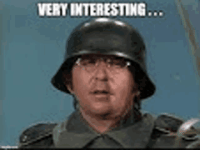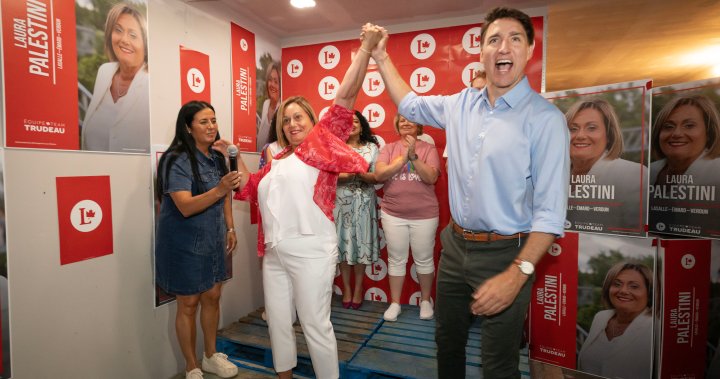Part 2 of 2
That’s in part why several say the Montreal by-election result on Monday will be so important. Another bad result can’t be discounted in the same way, with one former minister describing it as a referendum on Mr. Trudeau. Another minister said they expect the party will be on track to lose two-thirds of their seats in the next general election if they can’t hold LaSalle-Émard-Verdun.
Publicly, Liberal ministers and MPs are staying upbeat, but some in Mr. Trudeau’s entourage are privately chafing at the litany of negative stories they’ve endured. Senior staff and MPs tell The Globe they believe the national press hasn’t done enough to scrutinize Mr. Poilievre.
Behind closed doors during this week’s caucus retreat in Nanaimo, B.C., Mr. Trudeau’s chief of staff Katie Telford urged MPs to stop speaking to journalists, including The Globe, according to two people in the room.
Pollster Nik Nanos, founder of Nanos Research, said Mr. Trudeau’s brain trust is trying to put on a brave face to manage the nervous nellies in the Liberal caucus.
“Until the day Trudeau steps down they must say that he can turn it around and can win, even if they don’t believe it. When you are trailing your opponent by double-digits and there is no political coattails, that is the only way to control or manage caucus,” Mr. Nanos said.
Mr. Trudeau’s situation is not unlike what befell Brian Mulroney in 1993. He hung on too long despite polls showing that more Canadians believed Elvis was alive than supported his continued leadership of the Progressive Conservatives.
Mr. Mulroney was certain he could defeat Jean Chrétien’s Liberals. He waited until it was too late. He left his successor, Kim Campbell, with only a few months to turn things around. The Progressive Conservatives were reduced to two seats in the next election. Mr. Chrétien went on to win three majority governments before he was forced out in an internal party fight with Paul Martin.
Nobody expects a repeat of what happened to Mr. Chrétien. But one former minister expects to see at least some MPs and cabinet ministers leave in the coming months. Another Liberal stalwart estimated between 30 and 40 MPs may not seek re-election if Mr. Trudeau stays at the top.
The Prime Minister’s Quebec lieutenant and Transportation Minister, Pablo Rodriguez, has already decided to leave, said one minister who characterized his departure to run for the Quebec Liberals as a question of when not if. With Mr. Trudeau determined to hang in, a former minister said he would not be surprised if one or two of the cabinet leadership aspirants pack it in.
Already, Jeremy Broadhurst, the former top Trudeau adviser who helped run the last two campaigns, has
called it quits. Mr. Broadhurst announced his resignation as national campaign director last week, just days before Mr. Trudeau met with his caucus.
As The Globe reported Monday, there’s also been an
exodus of senior staff just as the minority Liberals are returning to a precarious position in the House of Commons, having lost the automatic support of the New Democratic Party.
Five of his 38 ministers are losing their chiefs of staff in quick succession, with several already gone, including top advisers at Global Affairs, Heritage, Environment, National Revenue and Mental Health and Addictions. More are expected to leave.
“There is a sense that the Trudeau government has run its course and that defeat in the next election is a guarantee. The departure of senior staff suggests that even those who are part of Team Trudeau can see the writing on the wall,” said Lori Turnbull, chair of the Dalhousie University public and international affairs department.
Liberal insiders say Mr. Trudeau sees himself as the comeback kid, a fighter who can beat the odds. He seems incapable, say those who know him, of accepting any responsibility for the widespread dissatisfaction with his government.
At a late August cabinet retreat, two sources said Mr. Trudeau criticized cabinet for the party’s low standing and urged them to be more effective in pumping up the spirits of his demoralized caucus.
At the closed-door caucus meeting in Nanaimo this week, three MPs said the tone was different than they have experienced in the past. The MPs said they didn’t endure the type of scolding from Ms. Telford that they got at last year’s meeting in London when they questioned the Prime Minister’s winnability. In advance of the Nanaimo meeting, Mr. Trudeau spent time at regional caucuses, listening to their concerns. And he and Ms. Freeland also spoke to dozens of MPs in one-on-one sessions at caucus meeting.
In July, The Globe reported that senior PMO officials, including Ms. Telford, were criticizing Ms. Freeland’s communications skills as a reason for the government’s inability to reconnect with Canadians. They blamed Ms. Freeland for failing to effectively sell the government’s economic policies that have come under assault from Mr. Poilievre.
Liberal insiders say Mr. Trudeau, his staff and Ms. Freeland equally share the blame for hiking capital-gains taxes in the budget that caused a backlash among entrepreneurs, doctors and cottage owners. Raising taxes of any kind when they are facing a Conservative opponent who is promising cuts made little political sense, they say. And the government has made things worse by mishandling immigration: opening the door to millions of temporary residents without proper consideration about how that would impact housing affordability.
In what must have been a humiliating blow to Ms. Freeland, the Prime Minister acknowledged in July that he tried to recruit Mr. Carney to his government.
While Mr. Carney is interested in running for the Liberal leadership should Mr. Trudeau step down, those close to him say he has no desire to join a deeply unpopular government heading for defeat.
However, Mr. Carney did go along with Mr. Trudeau’s urgings to head an economic task force to generate new ideas to turbocharge the economy and tackle the country’s low productivity. But outsourcing the job of setting the country’s business agenda to Mr. Carney signals a lack of confidence in Ms. Freeland and Mr. Champagne, the second-most important economic minister, who has won praise for bringing EV vehicle plants to Canada.
“Bringing in Mark Carney basically says there is no one on the bench for him that he has confidence in,” Mr. Nanos said. “Bringing in Mark Carney also suggests that the Prime Minister can turn this around by himself. For Justin Trudeau there is no real downside except from the perspective of managing his cabinet ministers, who will effectively take a second-row seat to Mark Carney as the new favourite of the Prime Minister.”
Two ministers characterized the role as a soft launch for the former central banker. No matter what, one said, this election will be Mr. Trudeau’s last and they view Mr. Carney’s new role as his chance to show his political chops and take the first step to getting him on the ballot as a candidate in the next campaign.
The other minister characterized it as Mr. Carney’s opening to prove his mettle to Liberals.
Perrin Beatty, the recently departed president of the Canadian Chamber of Commerce, wouldn’t comment on Liberal Party intrigues. But he welcomed Mr. Carney’s new role as the Prime Minister’s top economic adviser.
“It’s good that the Prime Minister has started to listen to advice from outside. The challenge has been to get the government’s attention, making them realize that there are serious problems that are affecting Canadians that need to be addressed,” Mr. Beatty said.
“My experience over the course of the last while has been that the government has seemed unaware of how seriously businesses and individual Canadians are being affected by the state of the economy.”
It’s not clear though that Mr. Trudeau – even with Mr. Carney on board – has the credibility on economic issues to make his case to voters.
While inflation, which surged to a 40-year high in 2022, is mostly back to normal and interest rates are coming down, housing affordability remains near an all-time low. Many homeowners are still looking at sizable jumps in their monthly payments when their mortgages reset. The size of the public service has ballooned and Mr. Trudeau has overseen a significant decline in Canadian productivity despite countless policies aimed at boosting business investment and innovation.
“My sense is there’s probably a fatigue from lots of promises and then not seeing immediate results,” said Rebekah Young, vice-president and head of inclusion and resilience economics at Bank of Nova Scotia.
“There’s certainly been no growth agenda, and, if anything, a kind of an anti-growth agenda, both in terms of signalling and policies. So I think that part of the challenge is coming up with this compelling kind of growth agenda, where Canadians see their own welfare in that agenda.”
A former senior campaign strategist said the outreach to Mr. Carney suggests a change in policy and not a change in leadership. The strategist said he didn’t pull any punches in a recent discussion with Mr. Trudeau, telling him the mood in the country is for change and Canadians are fatigued with his leadership and have lost faith in his government. While he doesn’t believe Mr. Trudeau can win the next election, his advice to the Prime Minister is to embrace radical change if he decides to stay.
The strategist said Mr. Trudeau must make dramatic changes on economic policy and stop talking about climate change and diversity issues. He advised the Prime Minister to pledge to tear down interprovincial barriers, get rid of supply management and bring in foreign competition in the telecom sector. These are radical ideas that would put Mr. Poilievre in a challenging situation, the senior Liberal said.
But the strategist added that he went away without any idea of what Mr. Trudeau plans to do other than this “sort of macho, combative spirit: I am not going to lose to Poilievre.”
----------
Very interesting, as someone used to say ...









